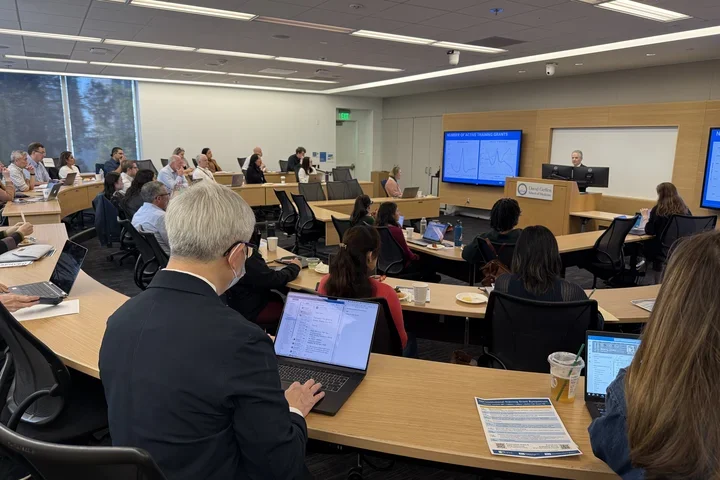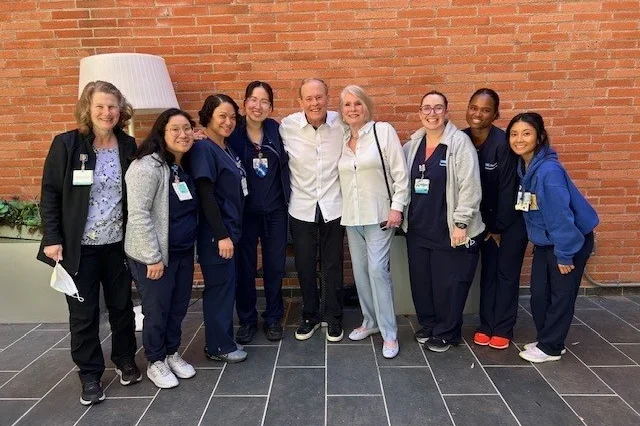The science of treating the inequalities that make us sick

New research theme is a joint mission of the UCLA Hospital System and DGSOM
Medical practitioners are increasingly aware that social inequalities are major drivers of poor health outcomes, but the vast majority have no idea how to address them in their practice.
Rochelle Dicker, MD, professor in residence of Surgery and Anesthesiology at UCLA and vice chair for Surgical Critical Care and the Co-Director of the Program for the Advancement of Surgical Equity (PASE) says that 40% of patients’ health status is influenced by the social determinants of health – the conditions or environments in which people are born, live, work, worship, and play. Determinants include financial stability, education, working conditions, social support, access to health services and more.
Addressing the social determinants of health is essential to improving overall individual health and, more broadly, achieving health equity – and according to Dr. Dicker, will take a “paradigm shift” within the culture of medicine.
Achieving such a paradigm shift will require drawing on the social sciences as basic sciences of medicine - just as genetics, neuroscience and other bench sciences inform medicine - says Helena Hansen, MD PhD, professor of Psychiatry and Biobehavioral Sciences at UCLA and Associate Director of the Center for Social Medicine.
“American medicine has long neglected studying the mechanisms underlying social determinants of health,” says Dr. Hansen, who serves as the Translational Social Science Research Theme Lead. She is a board-certified addiction psychiatrist and cultural anthropologist internationally recognized for her research on opioids and race. “That is one reason we spend the most per capita on health care of any nation, yet we have the worst health outcomes in the industrialized world. To turn that around, we’re going to need new forms of social-scientific collaboration and medical training.”
In November of 2020, UCLA Health launched the Research Theme in Health Equity and Translational Social Science to promote equitable care by studying and developing new models to address the impact of social determinants of health.
The new theme, led by Drs. Hansen and Dicker, will foster collaborations among social scientists, life scientists, clinicians, and clinical researchers and will study the integration of social interventions with medical care; for instance, hospital-based violence intervention programs.
“I'm hoping that many, many more of us can choose medicine, not because it's a stable source of income, but because we really want to do something about the horrible injustices and outcomes that we see in our current system,” she says. “If we as medical practitioners do not understand institutional and social systems, we will practice in a way that deepens inequalities and ultimately harms the health of us all.”
While approaching health inequalities from different directions, Dr. Dicker and Dr. Hansen say they have found themselves united in a mission to stem social determinants of poor outcomes at their roots.
An important element will be rebuilding trust with the community, Dr. Hansen says.
“We have to rebuild public faith through a really deep engagement with community,” she says, “and accountability in medicine should take the lead in that.”
Dr. Dicker says she believes this team has an opportunity to impact the greater Los Angeles community in a way that hasn’t been done before. If successful here, the research theme could serve as a model for other communities across the country.
This article was originally posted in UCLA Health. To read the full version of this article, visit: connect.uclahealth.org/2021/01/27/the-science-of-treating-the-inequalities-that-make-us-sick/.
The new Research Theme will be joining the CTSI Distinguished Speaker Series, a weekly seminar series hosted in partnership with the David Geffen School of Medicine Research Themes. Throughout the academic year, each Theme invites renowned speakers to present their research. The initial seminar hosted by the Research Theme in Health Equity and Translational Social Science will be held May 19, 2021.
Image source: UCLA Health
Image caption: UCLA CTSI



